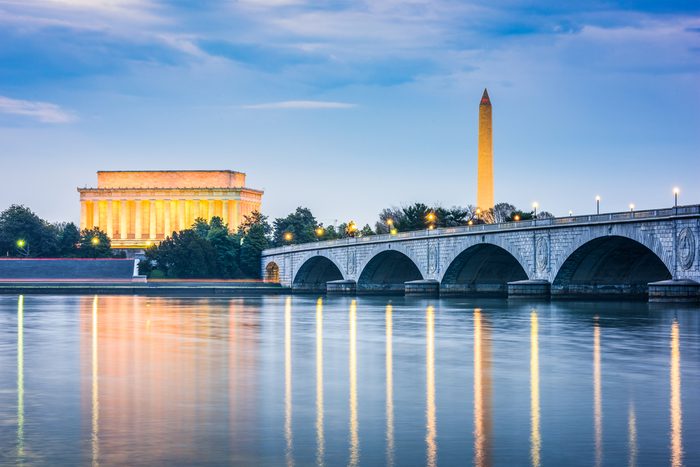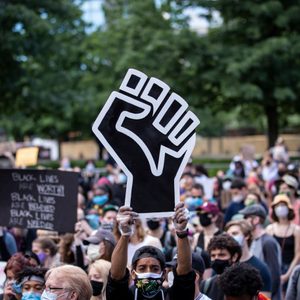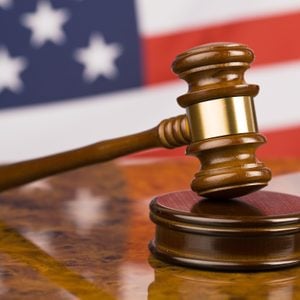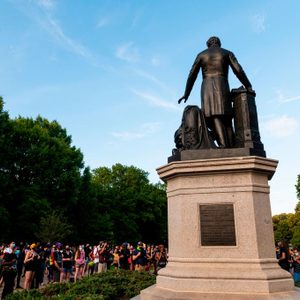This Is Why Washington, D.C. Isn’t a State
Updated: Oct. 24, 2022

It's closer to statehood than ever—but why wasn't it a state in the first place?
The topic of whether Washington, D.C. should become a state is more of a hot topic than it’s ever been. On June 26, 2020, the House of Representatives passed a bill called “H.R. 51” that would make Washington, D.C. the 51st state. Though the bill will likely not pass the Senate, the fact that this is the first bill for D.C. statehood to pass the House is significant on its own.
Why is this such a big deal—and why wasn’t Washington, D.C. a state in the first place? After all, it seems a little strange when you think about it—the center of government of the United States is not actually a state. Plus, here are the answers to more political questions you’ve been afraid to ask.
Why is the push for D.C. statehood gaining traction?
The movement to make Washington, D.C. a state has been gaining traction for a while. After all, Washington, D.C. is home to around 706,000 Americans who don’t get the perks that come with statehood. For instance, D.C. didn’t have any electoral votes until the passing of the 23rd Constitutional amendment in 1961. The presidential election of 1964 was the first time the residents of D.C. actually had an electoral say in who would end up in their White House. In Congress, D.C. has only a “shadow delegation,” representatives who sit in Congress but cannot vote. And yet it’s more populous than two actual states: Wyoming and Vermont. Though H.R. 51 is the first statehood bill to pass the House, delegates have been filing similar bills since 1993.
But the disturbing response to Black Lives Matter protests in Washington, D.C. in early June has brought the debate over D.C. statehood to the forefront. National Guard troops swarmed the streets, and Attorney General William Barr ordered the clearing of peaceful protesters, using crowd control measures such as tear gas, so that President Trump could pose for a photo op at a church. “Every state has a constitution that protects that state’s sovereignty, meaning that Trump would have needed the cooperation of that state’s governor [to deploy federal troops],” says Progress America‘s Mike Phelan. “But D.C. isn’t a state.”
Why wasn’t D.C. a state from the beginning?
Well, America’s Founding Fathers decided, when they wrote the Constitution, that it was imperative that the center of government was not in a state. In America’s early post-Revolution days, it would see several different temporary centers of government, all of them northern cities like Philadelphia and New York. While drafting the Constitution in 1787, the Founding Fathers decided that the new nation should have a permanent capital. But they were reluctant to give that much power to one single state.
So they wrote in Article 1, Section 8 of the Constitution that “[The Congress shall have Power] To exercise exclusive Legislation…over such District (not exceeding ten Miles square) as may…become the Seat of the Government of the United States.” The article also stated that this 100-mile district would come from land ceded by the states so that the new seat of government would be independent of any state. Check out more facts about U.S. history you didn’t learn in school.
But the location caused more tension between the founders—specifically, northerner Alexander Hamilton and southerner Thomas Jefferson. Hamilton thought having a northern capital would help the north settle outstanding Revolutionary War debts. Jefferson was wary about bankers and economic masterminds—who lived mostly in northern states—having too much control. So, to compromise, George Washington himself chose a location bordering the Potomac River. The northern Maryland and the southern Virginia would be the two states to cede land for this new capital, which was founded in 1790. So, in short, statehood for D.C. would directly contradict the Constitution.
But we’re a long way off from the time of the Founding Fathers, and, after all, the Constitution was made to be amended. So the statehood debate continues.
What will happen if Washington, D.C. becomes a state?
Washington, D.C. would gain a member of the House of Representatives and two new senators. (The fact that those senators would likely be Democratic is a big reason House and Senate Republicans oppose statehood.) The mayor, Muriel Bowser, will have the title of “governor” instead. The land of the new state would be all of the current land of Washington, D.C., except for a “capital district” over which the federal government would continue to have control. This district would include the White House and the buildings and monuments surrounding the National Mall.
Also, the capital would get a name change! Instead of standing for the District of Columbia, the “D.C.” will stand for “Douglass Commonwealth.” This pays homage to abolitionist Frederick Douglass, who lived there for 17 years. Next, check out some more surprising facts you never knew about Washington, D.C.



